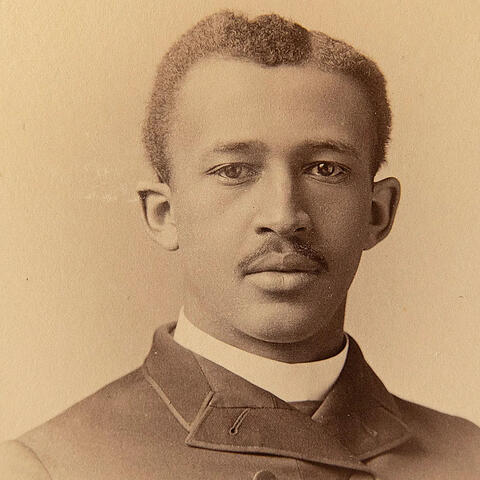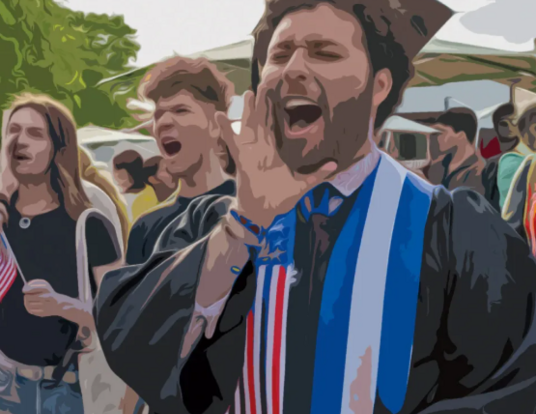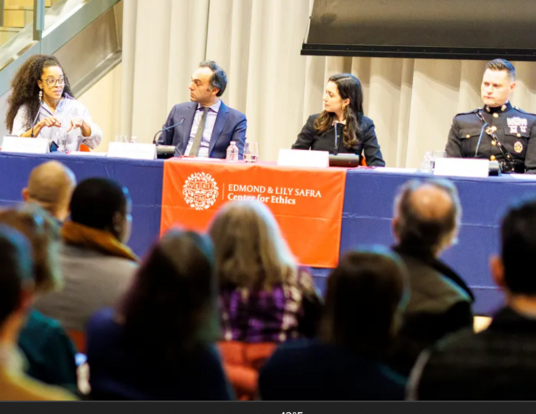Costing Out the Double Tax
How inequality impacts Black women—and why it hurts everyone
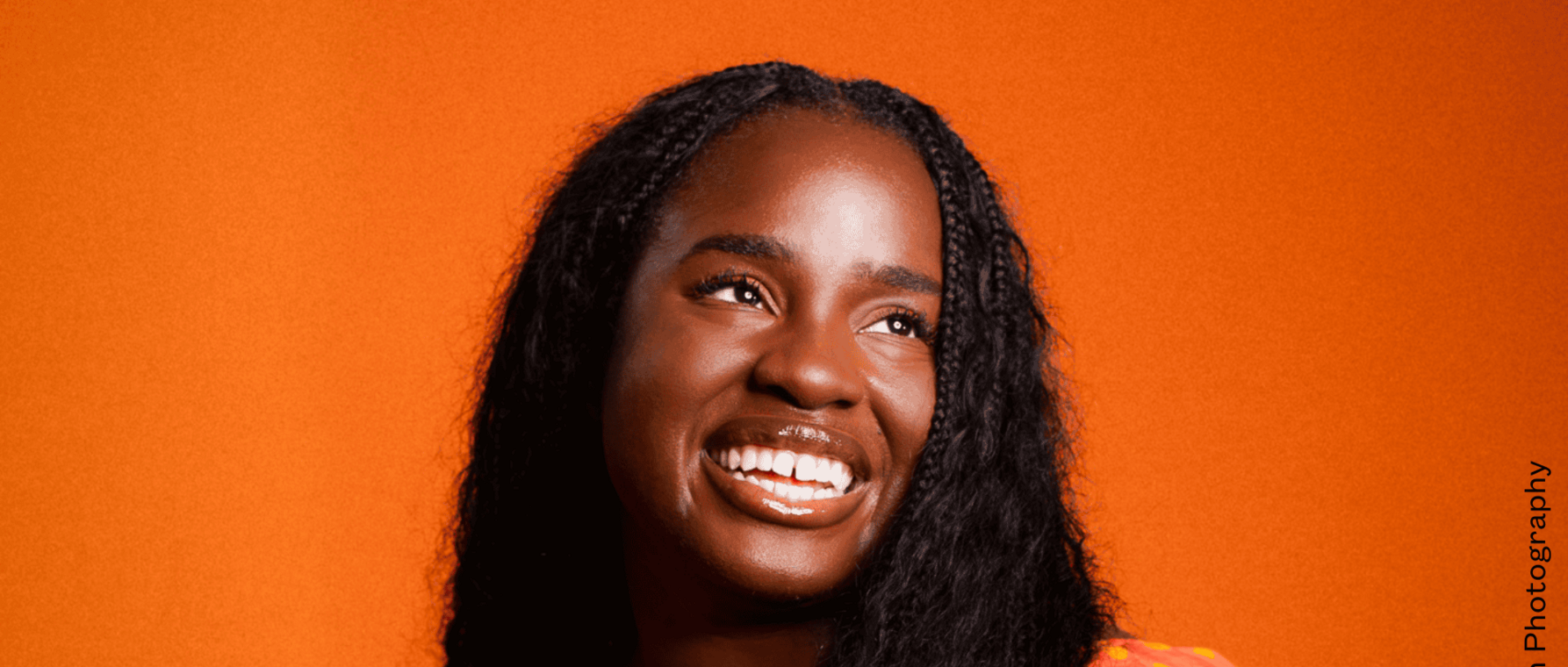
In her new book, The Double Tax, public policy PhD student Anna Gifty Opoku-Agyeman takes aim at the expense of being a woman and a person of color in our society. From beauty to childcare, housing, and many other areas of life, women are subject to costs not borne by men, Opoku-Agyeman says, and Black women to costs not borne by their white counterparts. In the end, though, society itself pays the bill, which is why Opoku-Agyeman, the youngest recipient of a Women's Rights Award from the United Nations Convention on the Elimination of All Forms of Discrimination Against Women, also recommends action, both on the individual and policy levels, to address inequality and injustice.
The following interview has been edited for length and clarity.
In the foreword to the book, Chelsea Clinton writes that your work is “not about assigning blame or evoking shame—it’s about creating a shared foundation to begin addressing the problems we face together and building toward a more equal future.” How so?
I didn’t write this book wanting people to feel bad at the end of the day. A lot of times when we talk about inequality, people leave the conversation thinking, “I’m a bad person because I’m part of a group that might be making things worse.” What I’m doing in the book is illustrating what’s happening and how we can fight it together. That takes the blame off the table in a way that keeps people’s minds open to something new. When people feel blamed, they shut down. They’re not going to listen, and they’re not going to apply anything. Chelsea’s point aligns with mine: I want all women and every ally to feel permission to embrace what the book is about and empowered to act.
What is the “double tax”? Who pays it, and what are the consequences?
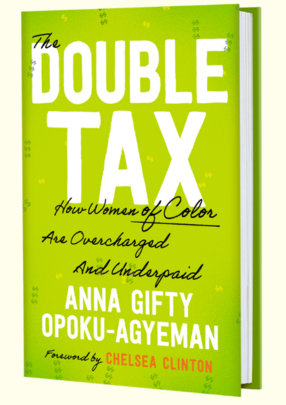
The double tax is the compounded cost of racism and sexism. Scholars of African American studies might call this the quantification of “misogynoir” when we’re talking specifically about Black women. I broaden it to women of color because, depending on where you sit, you may be closer to the most marginalized women on one day or in one domain than another.
Who pays? Society pays. There are individual costs at key milestones—beauty standards, career, motherhood, and so on—but if we leave those unaddressed, they become societal costs. If we don’t put out a fire at our neighbor’s house, it spreads to our doorstep. You can see a through line in media and culture: when discrimination against women of color is minimized, the harms resurface later in ways that are more visible and more costly for others. Black women are a useful benchmark for whether the double tax is being eliminated because our experiences overlap with many groups. We’re women; we’re Black; we’re middle-, working-, and low-income; many of us are mothers and breadwinners. We sit at the center of the Venn diagram. What happens to us often ends up affecting everyone.
The double tax is the cost of racism and sexism—and society pays it.
The book is structured around milestones across a woman’s life. Can you talk about some of these and how they reveal the double tax?
Beauty, housing, and motherhood are three. With beauty, the costs are high and constantly shifting because standards change. All women bear those costs, but Western beauty standards aren’t rooted in every community’s experience. For Black women, hair carries a lot of weight. A hairstyle can affect whether you get hired or whether a Black girl is kept in the classroom. Personally, braids cost me about $400 and take eight hours; doing that several times a year comes to roughly $2,000 and countless hours. This is all before maintenance. I also have to drive forty-five minutes to the nearest store to find products that actually work for my hair. Asian women we spoke with described a similar trial and error because the hair products marketed to white women don’t meet their needs.
Housing is another area. Women already face frictions—paying more for houses when we buy, getting less when we sell. Layer racism on top, and you see Black homeowners’ properties devalued, influenced in part by who appraises homes; nine out of ten appraisers in this country are white. Add student loan debt and the fact that Black women, even as incomes rise, are more likely to be recommended for subprime loans—the very products that helped crash the market in 2008—and you can see the double tax clearly.
Motherhood is enormous—childcare costs and the emotional labor add up. Mothers across groups told us they feel the pressure. Black mothers also described higher stakes: the fear that the state could get involved if they’re judged as “bad mothers,” a reaction to the legacy of stereotypes that stigmatize Black mothers like the “welfare queen.” Some told us they were uncomfortable bringing babysitters into the home because if the house wasn’t perfect, someone might say, “She isn’t caring for her child,” and that could escalate. The same mom guilt exists for white women, but the consequences differ greatly.
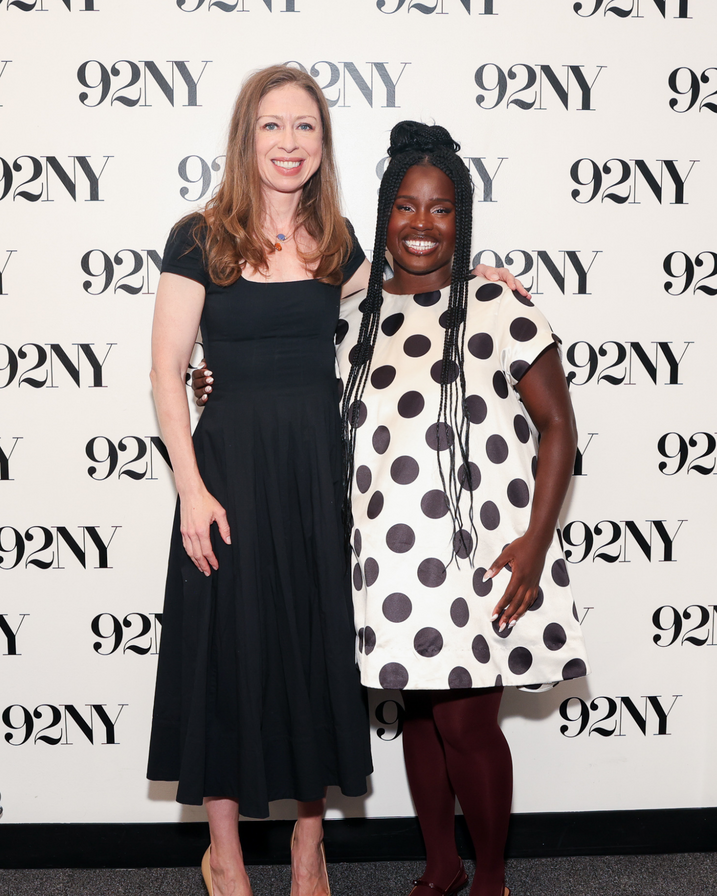
You spoke with women ages 18 to 72, Black and white. What are some stories that stayed with you?
On motherhood, I heard the same pressure to be the “perfect” mom from everyone, but Black moms talked about the added fear of outside scrutiny and state involvement. That really stuck with me. On careers, many young women—especially Black women—recounted being discouraged from high-paying fields. I experienced that. A college advisor told me I wasn’t the “right kind of person” to become an economist until he saw my transcript much later (even then, he wasn’t fully convinced). Earlier, a teacher said I asked too many questions to major in math!
Did you end up majoring in math?
I sure did! I eventually earned my bachelor’s in mathematics with honors and minored in economics at the University of Maryland, Baltimore County—but those moments of doubt from other people could have changed my path. Given that 69 percent of Black mothers are breadwinners, that kind of gatekeeping isn’t just hurtful; it affects family income and community wealth.
What happens to Black women often ends up affecting everyone else.
You’re a quantitative economist by trade. What are some numbers that crystallize the double tax problem for you?
First, beauty costs. Leading hair brands price products for hair textures like mine at a premium—about twenty cents more per ounce. That adds up to hundreds of dollars over time before we even get to styling. Braids alone can be around $2,000 per year, plus lost wages for time in the chair and the time it takes to travel for products that work.
Second, occupational segregation. In the highest-paid fields—law, medicine, finance—white men, who are about 31 percent of the population, are at least 52 percent of the professionals. White women reach proportional representation (in that they achieve their nationwide share in the career path) in only a few of those fields. Black women are far below proportional representation in nearly all of them; for example, we’re about 1 percent of pilots. In economics PhD programs, representation for Black women is below 1 percent. Meanwhile, women—especially Black and white women—are overrepresented in many of the lowest-paid occupations, including care and service roles.
Third, motherhood and health care. Quality childcare can cost what amounts to a second mortgage for many families. Procedures like unplanned C-sections are extremely expensive without insurance, and even essential services like ultrasounds can run from the low hundreds to over a thousand dollars. These expenses stack with workplace frictions. The double tax doesn’t happen in a vacuum; it compounds across life stages.
Why should men and other people care? Because our society relies on women. Reducing these costs makes everyone’s life more stable.
You end the book by discussing how to address the double tax through individual and community action and also through policy. What are some examples of each?
Individually, caregivers need boundaries and rest. Without that, people burn out—especially Black women, who often care across multiple generations and, for many immigrant families, across borders. In communities, bring people together around practical support—mutual aid for childcare gaps, carpooling, meal trains—and normalize using those supports. On policy, pay caregivers a livable wage. Caregiving is valuable work that grows the economy when we compensate it. Also, we need to protect Social Security. It keeps many people 65 and older out of poverty. Getting rid of it would put us out of step with peer nations. Finally, expand health care access. Most older adults have at least one chronic condition, so cutting Medicare or Medicaid makes the double tax worse. Voters can support candidates at every level who back these policies.
Gatekeeping doesn’t just bruise egos; it cuts into family income and community wealth.
Finally, does the book flow from your PhD research? Is it part of your dissertation?
It’s a side project! People are confused about how I did it during a PhD, but I had a wonderful team—that’s why I often say “we” when I talk about the book. My dissertation work—race, gender, and the economy, focused on the workplace—made the career chapters easier to write. The spark was a conversation after a talk when someone told me to prove that Black women are worse off and to prove that making things better for Black women helps everyone. The research exists, but it’s scattered. I wanted to bring it together.
When we put out a call for interviews, about 4,000 people signed up. Later, my committee asked why I didn’t turn parts into a paper or an experiment—which is fair—but I wanted to center people’s voices and synthesize the evidence so readers could see the whole system and feel equipped to act. At the end of the day, I believe that we should interrogate whether we’re living in the best society possible. One way to get closer is to alleviate—and eventually eliminate—the double tax wherever it shows up in our lives, communities, country, and world. It really is in our hands.
Get the Latest Updates
Join Our Newsletter
Subscribe to Colloquy Podcast
Simplecast


